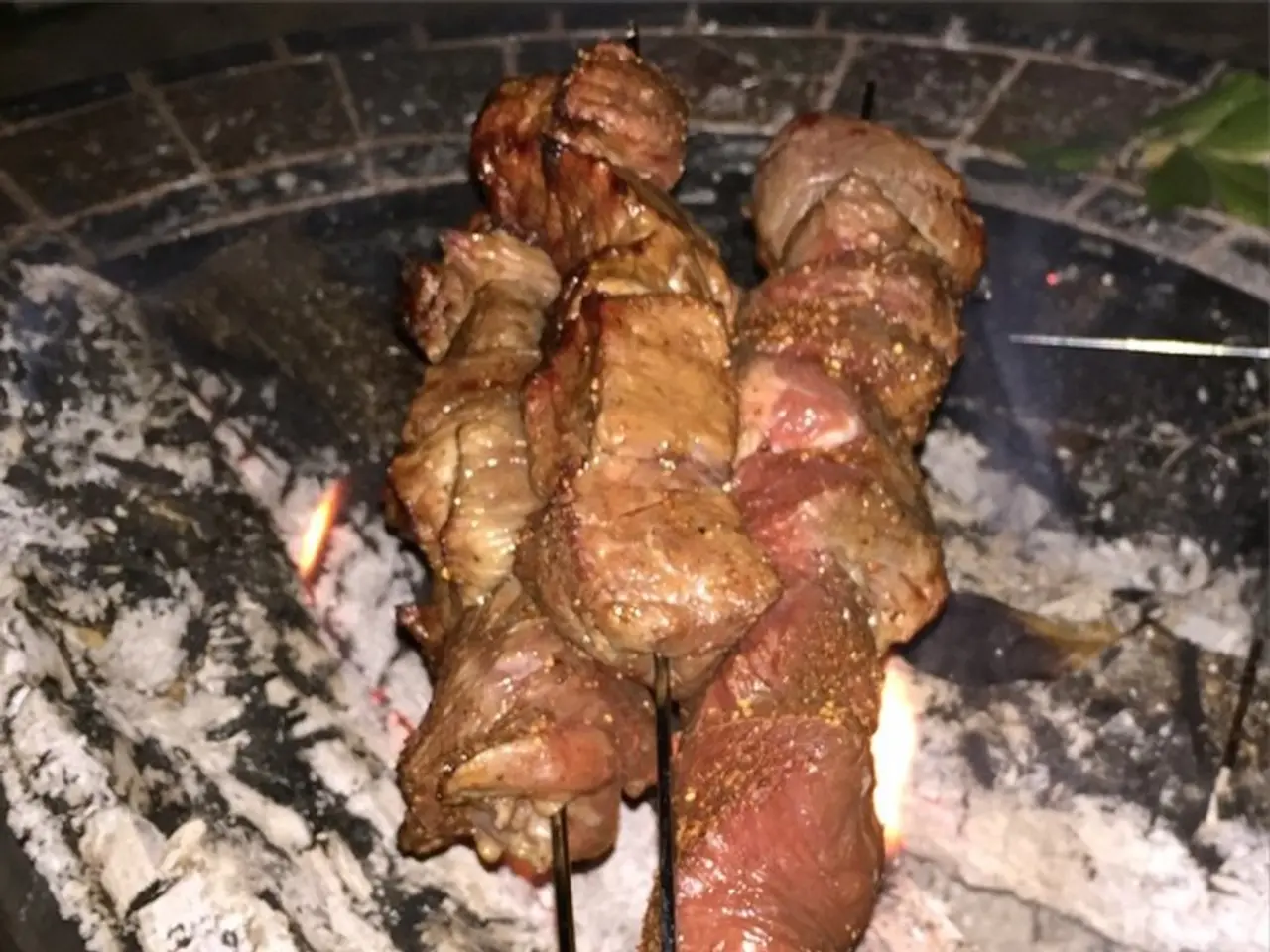Food offering energy, vitamin B6, and C nutrients
Cassava, a tuber native to South America, is gaining popularity as a nutritious and versatile food source. Rich in carbohydrates, vitamins B6 and C, and antioxidants, cassava offers a range of health benefits for individuals leading active lifestyles.
One of the key advantages of cassava is its slow-release carbohydrate profile. This makes it an ideal energy source for endurance athletes, providing sustained fuel that helps increase muscle glycogen stores, reduce blood lactate levels, and lower perceived exertion during endurance activities [1]. For athletes preparing for a race or recovering from a challenging workout, cassava can be a valuable addition to their diet.
Cassava also caters to the needs of those with celiac disease, a condition that makes the consumption of gluten-containing foods harmful. As a naturally gluten-free food, cassava serves as a safe and energy-rich carbohydrate option that supports energy needs without triggering gluten-related symptoms [4]. This can lead to improved energy, reduced inflammation, and better digestive health for those on a gluten-free diet.
Preparing cassava is relatively straightforward. To speed up the cooking process of old or very hard cassava, a tablespoon of baking soda can be added to the boiling water. For those seeking to reduce the starch content, soaking the cassava in cold water for one or two hours before boiling can help soften the central fibre and eliminate some of the starch [2]. Adding salt to the water while boiling can enhance the flavour.
Cassava also offers health benefits beyond its energy-rich properties. Its astringent compounds, known as saponins, make it suitable in cases of colitis or diarrhea. Moreover, cassava contributes to cardiovascular health due to its antioxidant properties, lack of cholesterol, and low resveratrol content. It also promotes weight loss by generating a sense of fullness and helping regulate mood by playing a role in serotonin production [3].
In summary, cassava’s slow-release carbohydrate profile makes it valuable for athletes needing sustained endurance energy, while its gluten-free nature makes it a safe, energy-rich carb choice for people with celiac disease. However, it is crucial to consult with a doctor before adding cassava to one’s diet.
References:
[1] Frestedt, J. L., & Cox, M. M. (2008). Manipulating carbohydrate intake to improve endurance performance. Journal of Sports Sciences, 26(11), 1285-1293.
[2] Food and Agriculture Organization of the United Nations. (2010). Cassava: A source of food, industrial raw material and animal feed. Rome, Italy: FAO.
[3] Lopez-Carrillo, L., & Rodriguez-Mateos, A. (2010). Cassava: A functional food with potential health benefits. Critical Reviews in Food Science and Nutrition, 50(11), 1143-1160.
[4] National Foundation for Celiac Awareness. (2019). Gluten-free carbohydrates: What, why, and how much. Retrieved from https://www.celiaccentral.org/gluten-free-carbohydrates-what-why-and-how-much/
- The health benefits of cassava extend beyond its energy-rich properties, as it promotes weight loss by generating a sense of fullness and helping regulate mood through its role in serotonin production.
- For individuals adhering to a gluten-free diet due to celiac disease, cassava serves as a safe, energy-rich carbohydrate option that supports their energy needs without inducing gluten-related symptoms.
- To support fitness and health-and-wellness goals, incorporation of cassava, rich in nutrients such as vitamins B6 and C, antioxidants, and slow-release carbohydrates, into a balanced diet along with fitness-and-exercise and proper nutrition can contribute positively to overall health.




